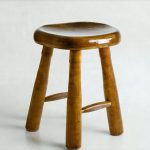Anxiety is an incredibly common experience, touching nearly everyone’s life at some point. While often associated with mental or emotional symptoms like racing thoughts or excessive worry, anxiety frequently manifests physically as well. These physical expressions can range from increased heart rate and muscle tension to digestive upset – and a surprisingly frequent one is loose stools or even diarrhea. It’s important to understand that experiencing this isn’t necessarily a sign of illness; it’s often the body’s natural (though unpleasant) response to intense stress and fear. This article will delve into the connection between anxiety, intestinal discomfort, and subsequent changes in bowel habits, exploring the ‘why’ behind these symptoms and offering insights for managing them.
The gut-brain axis is a bidirectional communication system linking the gastrointestinal tract and the brain. It’s not simply one direction – your brain influences your gut, and your gut influences your brain. When you experience anxiety, your sympathetic nervous system (the ‘fight or flight’ response) kicks into gear. This triggers a cascade of physiological changes designed to prepare you for perceived danger. One key component of this is the release of hormones like cortisol and adrenaline. These hormones can directly impact digestive function, often accelerating it and leading to increased bowel motility – which in turn can lead to loose stools. Furthermore, anxiety can affect gut microbiota composition, potentially exacerbating digestive issues. This complex interplay explains why many people find their bowels are particularly sensitive when experiencing periods of high stress or anxiety. Understanding how key takeaways from tracking digestive data can help you identify patterns is crucial for management.
The Gut-Brain Connection: A Deeper Dive
The intricate relationship between the brain and the gut is increasingly recognized as a central factor in understanding how anxiety impacts bowel function. It’s not merely psychological; there are demonstrable physiological pathways at play. – Neurotransmitters like serotonin, often called the “happy hormone,” are largely produced in the gut. This means a compromised or stressed digestive system can potentially affect mood and emotional regulation, creating a feedback loop. – The vagus nerve acts as a major communication highway between the brain and the gut, transmitting signals in both directions. Anxiety can disrupt these signals. – Immune function is also closely linked to the gut. Chronic stress and anxiety can weaken the immune system, making individuals more susceptible to digestive upset and inflammation.
This connection explains why anxiety doesn’t just cause immediate bowel changes during a stressful event but can contribute to longer-term digestive issues like Irritable Bowel Syndrome (IBS). The brain interprets signals from the gut, and the gut responds to signals from the brain. When this system is dysregulated by chronic anxiety, it creates a vicious cycle where physical symptoms reinforce anxious thoughts, further exacerbating the problem. It’s crucial to remember that this isn’t ‘all in your head’; it’s a genuine physiological response with real consequences. Understanding this connection can empower individuals to seek appropriate support and management strategies. If signs from test results indicate a need for dietary changes, it’s important to address them proactively.
The impact of anxiety on gut motility is significant. Normally, peristalsis – the wave-like muscle contractions that move food through the digestive tract – operates at a relatively consistent pace. However, during periods of anxiety, the sympathetic nervous system causes an acceleration of these contractions. This rapid movement doesn’t allow sufficient time for water absorption in the large intestine, resulting in looser stools. Conversely, some individuals may experience constipation as anxiety can also lead to muscle tension and spasms in the gut, slowing down peristalsis. The specific reaction varies depending on individual physiology, the intensity of the anxiety, and other underlying factors.
Identifying Anxiety as a Contributing Factor
Differentiating between anxiety-related loose stools and those caused by infection or illness is essential. While a single episode might not be cause for concern, persistent changes in bowel habits warrant investigation. Consider these points when assessing if anxiety could be playing a role: – Do your symptoms coincide with periods of heightened stress, worry, or panic? – Are the loose stools often accompanied by other anxiety symptoms like racing heart, sweating, or difficulty breathing? – Have you ruled out food poisoning, viral infections, or other medical causes through appropriate testing?
It’s important to be honest with yourself and your healthcare provider about your anxiety levels. Many people are hesitant to discuss mental health concerns, but open communication is vital for accurate diagnosis and effective treatment. A doctor can help determine whether further investigation (such as stool tests) is necessary to rule out other potential causes. Self-diagnosis should always be avoided. The goal is to understand the root cause of your symptoms so you can address them appropriately. Determining top early signs from stool tests that need follow-up may also be helpful.
Lifestyle Adjustments for Gut Health & Anxiety Management
Addressing anxiety and its impact on gut health requires a multifaceted approach that combines lifestyle changes with, if necessary, professional support. Here are some strategies: 1. Stress Reduction Techniques: Incorporate practices like mindfulness meditation, deep breathing exercises, yoga, or progressive muscle relaxation into your daily routine. These techniques can help calm the nervous system and reduce anxiety levels. 2. Dietary Modifications: While there’s no one-size-fits-all diet, reducing processed foods, sugar intake, and caffeine consumption can often improve digestive health. Focusing on a balanced diet rich in fiber, prebiotics (foods that feed beneficial gut bacteria), and probiotics (live microorganisms found in fermented foods) is generally recommended. 3. Regular Exercise: Physical activity releases endorphins, which have mood-boosting effects. It also helps regulate digestion and reduce stress hormones. Learning what you can learn from testing after switching diets is a proactive step toward better gut health.
These lifestyle changes aren’t quick fixes but consistent implementation can significantly impact both anxiety levels and gut health. Remember that small, sustainable changes are more effective than drastic, short-lived attempts. Don’t try to overhaul your entire life at once; start with one or two manageable adjustments and gradually build from there.
Seeking Professional Support: When To Consult A Doctor
While lifestyle modifications can often alleviate mild anxiety-related loose stools, professional help may be necessary in certain situations. Consider consulting a doctor if: – Your symptoms are severe, persistent, or interfering with your daily life. – You experience other concerning symptoms like blood in the stool, fever, or significant abdominal pain. – You have underlying medical conditions that could be contributing to your digestive issues. – You’re struggling to manage anxiety on your own and it’s significantly impacting your mental health.
A healthcare provider can provide a proper diagnosis, rule out other potential causes, and recommend appropriate treatment options. This might include therapy (cognitive behavioral therapy or CBT is often effective for anxiety), medication (anti-anxiety medications or antidepressants), or referral to a gastroenterologist if further investigation of the digestive system is warranted. Seeking professional help is a sign of strength, not weakness. It demonstrates self-awareness and a commitment to your overall wellbeing. Remember that you’re not alone, and there are resources available to support you through this. Understanding which results hint at gut-related anxiety symptoms can help guide treatment decisions. Additionally, in cases involving eating disorders, GI diagnostics used are crucial for recovery.


















